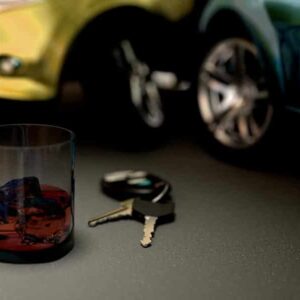A car accident is stressful enough without the added worry of accidentally jeopardising your potential claim. In our always-online lives, it’s easy to share updates on social media instinctively. However, a few ill-considered posts can significantly damage your chances of receiving fair compensation. Here’s a rundown of the types of social media activity you should avoid like the plague after a collision:
1. Social Media Silence is Golden: Protecting Your Car Accident Claim
The simplest and often best advice? Go dark. Consider temporarily deactivating your accounts or drastically limiting your posting. Even seemingly innocuous updates can be twisted and used against you. Insurance companies increasingly scrutinise social media for anything that might undermine a claim. Think of it this way: anything you put online is potentially public record and fair game.
While privacy settings offer some protection, they aren’t foolproof. A “friend” could easily screenshot and share your content. Plus, insurance companies are becoming increasingly sophisticated in their methods, sometimes even creating fake profiles to gain access to private information. Minimising your online presence immediately following the accident is the safest route.
2. Posting About the “Minor” Incident: Downplaying Your Injuries
“Just a little fender bender! All good!” While you might feel obligated to reassure your followers, downplaying the severity of the accident or your injuries is a significant mistake. Even if you genuinely believe the damage is minor immediately after the incident, symptoms can develop days or weeks later.
For example, posting photos of yourself smiling and enjoying activities soon after the accident, accompanied by captions like “Feeling fine!”, can be used by the insurance company to argue that your injuries aren’t as severe as you claim. They might try to portray you as exaggerating your pain and suffering. Remember, whiplash and other soft tissue injuries often aren’t immediately apparent.
3. Admitting Fault Online: A Claim Killer
This one should be obvious, but it’s surprisingly common. Avoid posting anything that suggests you were at fault, even in jest. Saying things like “Oops, my bad!” or “I spaced out!” online is essentially handing the other party ammunition to deny your claim.
Even if you think you were partially responsible, let the police and your solicitor handle the investigation and determination of fault. Your off-the-cuff social media admission could contradict your official statement and undermine your position. A 2023 study by the Association of British Insurers showed that cases involving online admissions of fault are significantly less likely to result in a successful payout.
4. Ranting About the Other Driver: Fueling Legal Troubles After a Car Accident
Resist the urge to vent your frustrations online, no matter how justified you feel. Ranting about the other driver using derogatory language or accusing them of negligence could open you up to defamation claims. Furthermore, it can portray you as emotionally unstable, potentially impacting how seriously your claim is taken.
For example, posting something like “That idiot [Driver’s Name] completely ruined my car! He was probably texting!” is not only potentially libellous but also provides no actual evidence to support your claim. Focus on gathering evidence, working with your solicitor, and not engaging in online arguments.
5. Sharing Accident Scene Photos: Compromising Your Case on Social Media
While you might think sharing photos of the accident scene is helpful, it can backfire. The opposing party’s insurance company could use these photos to argue that the damage wasn’t as extensive as you claim or to dispute your version of events.
Incident scene photos often contain metadata, including location data and timestamps. This information can be used to verify or contradict your statements about the accident, potentially hurting your claim if discrepancies arise. Let the police and your insurance company’s investigators document the scene thoroughly. Avoid sharing any images yourself.
6. Discussing Insurance Details Online: Inviting Scams and Complications
Sharing details about your insurance policy or claim online is an invitation for scammers and can complicate your claim process. You might inadvertently reveal information that could be used to defraud you or influence the insurance company’s assessment.
Never post screenshots of emails from your insurer, policy numbers, or details about your settlement negotiations. This sensitive information should only be shared directly with your solicitor and insurance company. Keeping your insurance details private protects you from potential fraud and ensures the integrity of your claim.
7. Bragging About Being Okay: Undermining Your Car Accident Claim with Social Media Posts
Even if you feel okay, bragging about your physical condition immediately after the accident can harm your claim. As mentioned earlier, soft tissue injuries, especially, can take time to manifest. Posting about strenuous activities or showing off your ability to do things you wouldn’t normally do with an injury could be evidence against you.
For example, suppose you post a video of yourself playing football just days after claiming you suffered back pain in a car accident. In that case, the insurance company will likely question the severity of your injury. Remember to prioritise your health, consult a doctor, and refrain from posting anything that could be interpreted as inconsistent with your injuries.
By avoiding these social media pitfalls, you’ll significantly increase your chances of a successful car accident claim and protect yourself from unnecessary complications. When in doubt, err on caution and remember that silence is often the best policy. Consult with your solicitor for personalised advice regarding your specific situation.





